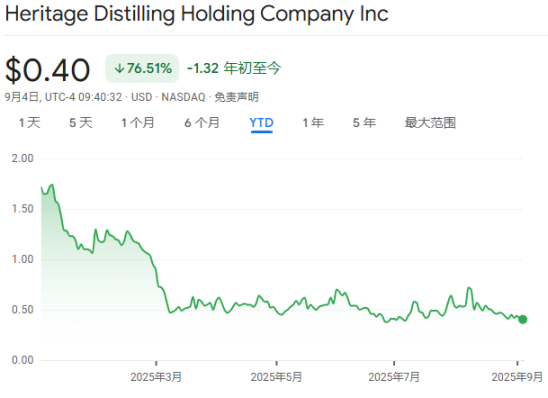Nasdaq takes action! Stricter regulation for crypto concept stocks: issuing new shares to buy crypto now requires shareholder approval
The vast majority of cryptocurrency concept stocks are traded on Nasdaq. The exchange hopes that companies will slow down before transforming into cryptocurrency stocks to ensure that investors fully understand the associated risks.
The vast majority of cryptocurrency concept stocks are traded on Nasdaq, and the exchange hopes companies will slow down before transforming into cryptocurrency stocks to ensure investors fully understand the associated risks.
Written by: Zhao Ying
Source: Wallstreetcn
Nasdaq is stepping up scrutiny of its listed companies' actions to boost stock prices by raising funds to purchase cryptocurrencies.
On Thursday, according to company documents and sources cited by the media, the exchange now requires some companies to obtain shareholder approval before issuing new shares to purchase cryptocurrencies.
This regulatory move may slow down the current cryptocurrency boom, which is pushing more and more alternative tokens into the mainstream market. The vast majority of cryptocurrency concept stocks are traded on Nasdaq, and the exchange hopes companies will slow down before transforming into cryptocurrency stocks to ensure investors fully understand the associated risks.
Nasdaq's new requirements include procedures such as shareholder voting, which industry participants say may delay transactions and bring uncertainty to the crypto frenzy in the stock market. If companies do not comply with the relevant regulations, Nasdaq has the right to delist or suspend their trading.
Tighter Regulation Impacts Fundraising Pace
So far this year, 124 U.S. listed companies have announced plans to raise more than $133 billion to purchase cryptocurrencies, according to data from crypto advisory firm Architect Partners. Of these, 94 stocks are listed on Nasdaq, and only 17 are traded on the New York Stock Exchange.
Companies are scrambling to accumulate as many tokens as possible, trying to become the preferred stock for specific tokens. Their success largely depends on the speed of fundraising and stock issuance. This strategy works best in a rising crypto market, so any delay could cause companies to miss their window of opportunity.
Nasdaq's strict scrutiny represents a balancing act—profiting from company listings while also fulfilling regulatory responsibilities.
Dan Kahan, a partner at King & Spalding, said that by requiring shareholder approval, Nasdaq is essentially signaling that if you invest in a Nasdaq company, shareholders will typically have a say before the company undergoes truly transformative changes in ownership or operations.
Imitating MicroStrategy’s Strategy Brings Risks
These companies are imitating the strategy of Michael Saylor's MicroStrategy. This software maker's main business now is buying bitcoin, having accumulated $71 billion worth of cryptocurrency over the past five years, making it a hot stock.
Recently, companies have begun turning to smaller, newer, and less liquid tokens, which may be more volatile or more susceptible to market manipulation. Of the 124 crypto stocks tracked by Architect Partners, nearly half are buying these small tokens, including the Trump family's World Liberty token. Critics argue that these transactions may be a way for token holders to sell tokens to unsophisticated stock market investors.
Heritage Distilling has become a typical case affected by Nasdaq’s new rules. This Nasdaq-listed craft distillery, which mainly produces military-themed whiskey, plans to accumulate the relatively new crypto token IP, the native token of the Story blockchain. Heritage raised funds from investors such as a16z Crypto and Polychain Capital, with part of the financing conducted in the form of IP tokens, the native token of the Story blockchain. Heritage raised funds from investors such as a16zCrypto and Polychain Capital, with part of the financing conducted in the form of IP tokens.

Nasdaq informed Heritage that its plan requires shareholder approval. Last month, the company modified its transaction structure, offering investors prepaid warrants instead of shares, which can only be exercised after Heritage obtains shareholder approval. Heritage stated in its securities filing that this move was to comply with Nasdaq listing rules and has scheduled a shareholder meeting for September 18.
Stephen Alicanti, a partner at DLA Piper, said this is a new and evolving topic over the past few weeks and months. Some companies have had to change their transaction structures after announcing deals. You have to be very careful to comply with Nasdaq rules, because if you encounter problems a few weeks after completing a transaction, you could end up in a bad situation where you might have to unwind the deal.
Disclaimer: The content of this article solely reflects the author's opinion and does not represent the platform in any capacity. This article is not intended to serve as a reference for making investment decisions.
You may also like
Mars Weekly | CARDS market cap surpasses $650 million, reaching a record high; probability of a 50 basis point Fed rate cut in September is 6.6%
Ethereum Foundation has released an end-to-end privacy roadmap, focusing on three main areas: privacy writing, reading, and proof, and plans to launch the experimental L2 PlasmaFold. CARDS market cap hits a record high, and pump.fun's live stream numbers have surpassed Rumble. The Shibarium cross-chain bridge suffered an attack, resulting in a loss of $2.4 million. Summary generated by Mars AI. The accuracy and completeness of this summary generated by the Mars AI model are still in the iterative update stage.

Cardano (ADA) Near $0.8851 Support, Could Fall Toward $0.87-$0.86 or Test $1 on Breakout

Trending news
MoreMars Weekly | CARDS market cap surpasses $650 million, reaching a record high; probability of a 50 basis point Fed rate cut in September is 6.6%
[Bitpush Weekend Key News Review] Vitalik: Ethereum's mission is to connect Eastern and Western communities, with plans to achieve 10x scalability next year; BNB's market cap surpasses 130 billions USD, hitting a new high and overtaking BYD to rank 167th among global assets by market cap; Polymarket plans to return to the US and seek new financing, with a potential valuation of 10 billions USD.

![[Bitpush Weekend Key News Review] Vitalik: Ethereum's mission is to connect Eastern and Western communities, with plans to achieve 10x scalability next year; BNB's market cap surpasses 130 billions USD, hitting a new high and overtaking BYD to rank 167th among global assets by market cap; Polymarket plans to return to the US and seek new financing, with a potential valuation of 10 billions USD.](https://img.bgstatic.com/multiLang/image/social/c12fbd60c9929a801f4046ab224452e41757878921347.png)
